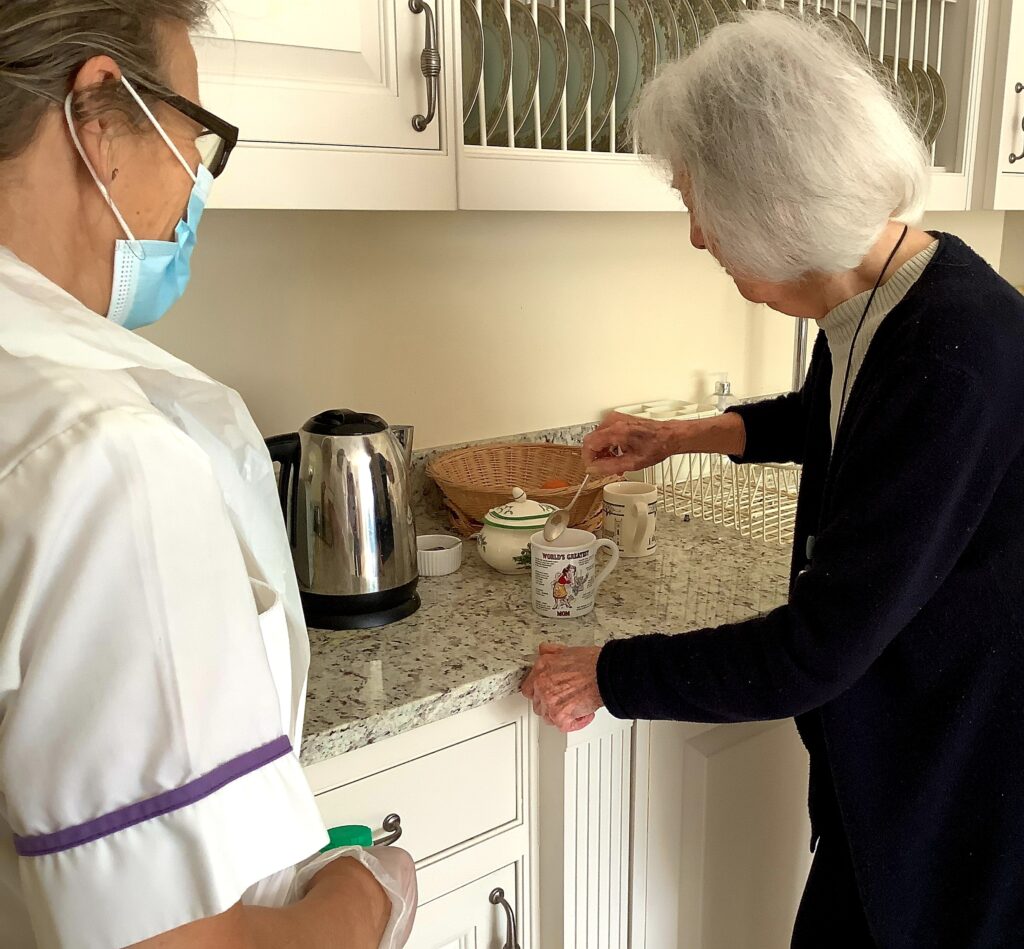Testimonials
"Thank you so much for all you have done to help care for my mother in her own home, enabling her to remain in her cottage with support and companionship for over 2 years. The cottage is not an easy place to care for an elderly lady – but you managed it! So many thanks to her main carers over the years and to all the other girls who have been there unfailingly for her to look after her. Thank you Verina for all your incredible support and understanding. You are truly an exceptional care agency and with your individual attention, understanding and irrepressible good humour you are definitely a real angel and excellent Manager."
Daughter of Client Soberton
"Thank you so much for looking after Kay so well, you made such a difference to her life."
DianePetersfield
"I am so thankful that we were recommended to you. I cannot imagine how we would have coped with an out of area agency, live in care and indeed carers who did not put everything into looking after their patient. You coped with Mum when I was out of it emotionally with her anger and I am so grateful."
NickyHambledon
"I just wanted you to know how grateful Pam and I were for all the care that you gave to Mum over her last fifteen months. You were right there when she came out of hospital and with your little team, kept her going right up to the end with care that was both fully professional and really loving. I know she looked forward to every visit and that made it easy for Pam and me to hand over each time."
SylviaHambledon
"We cannot thank you all enough for how wonderfully you took care of Dad over the past few months. He greatly enjoyed his weekly chats with Sue and the Kelly and we know it brightened his week. The time and care you gave him during his last few weeks will always stay as a wonderful memory of that time. We know he was safe and well looked after. How you looked after our worries and stresses was so kind and we will be eternally grateful."
LyndseyCowplain
"We just wanted to write to thank you and the girls (Becky, Amy, Danni, Carla and Fiona) for all that you did for Sue in the last few weeks of her life. We know that it made a huge difference to her. The knowledge that she could be safe in her own home meant so much to her and us. The professionalism that your team has is second to none. They were kind and calm in all situations without exception. Their ability to be welcoming and patient with all Sue’s guests and phone calls and the humour and knowledge they brought to what could have been difficult and stressful situations was much appreciated. Please pass on our thanks and gratitude to all those involved in Sue’s care."
SteveSoberton
"It has been a real eye-opener to see how expert, professional, and sensitive they all were in the way they looked after Mum. It is clearly a real vocation for what they do. Many of your lovely carers regularly went above and beyond in how they looked after Mum, from something as apparently simple as sharing a cheery chat and talking to her about their news, through to listening carefully to Mums wishes and doing their very best to make sure she felt like her voice was heard and respect was given to her wishes."
ConnorHampshire
"Verina Daly Care has been caring for my wife for over a year now and I can't speak too highly of the standard of care that they provide. All the staff that call are polite, courteous and respectful and most importantly well trained. What is also important to me is that Verina is always available to discuss anything of importance."
CliveHampshire
"Very good care agency, well organised, lovely, kind and efficient carers, I wouldn’t hesitate to recommend this agency."
PenelopeHampshire
"Punctual, reliable, friendly, trustworthy, professional, couldn't ask for much more from a care agency, Very happy with the service i have received from them so far."
DavidHampshire
Previous
Next
View more of our testimonials on the Homecare website.


